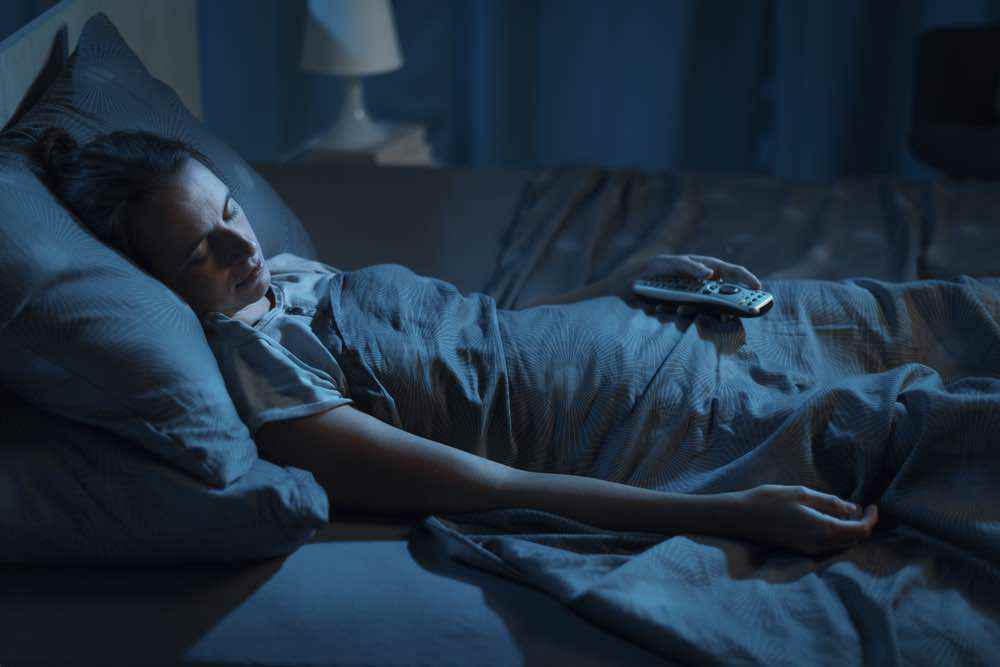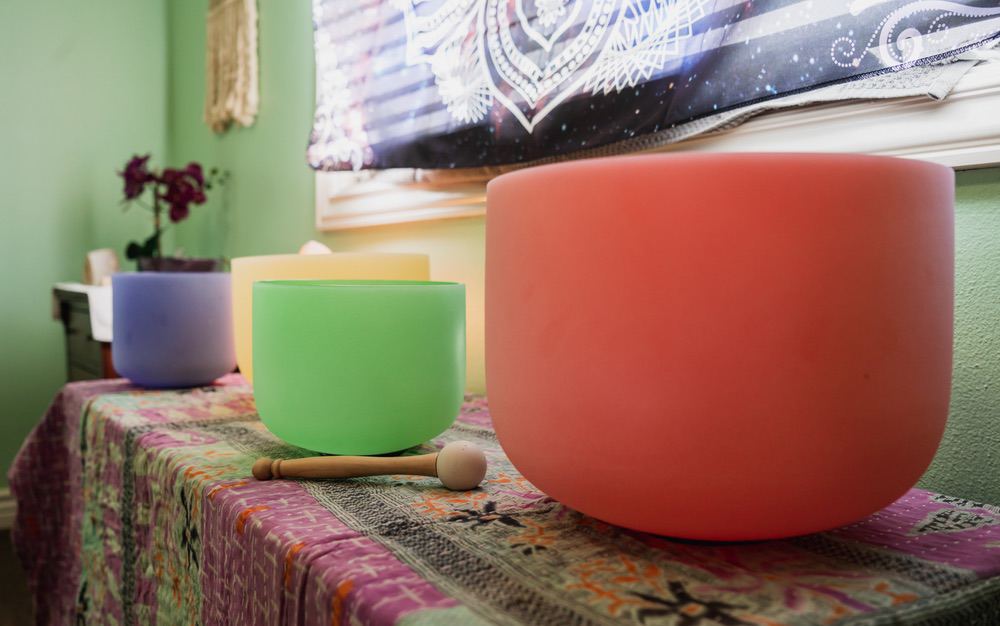
If you think CBT is the latest, greatest form of CBD, like CBN, good guess, but not quite. CBT stands for cognitive behavioral therapy (CBT), and just like Chef V products, it has the backing of research for improving sleep quality. ChefV.com founder Veronica Wheat provides an intro to CBT.
Over the last few weeks, I’ve covered something I’m incredibly proud of. ChefV.com products were recently the focus of an independent clinical trial by Citrus Labs, and the results were amazing.
The 38 participants who completed a 21 DAY DETOX and then continued on a GREEN DRINK plan for 7 days saw vast improvements in all areas of their life. This includes a 34% reduction in inflammation, an average weight loss of nearly 8 pounds, and for what I want to focus on in this article, a 44% improvement in sleep quality.
So that got me thinking…
What else can help the Chef V community get more restful ZZZs?
I’m not going to bore you with how important sleep is. I’m sure every article you’ve read details how sleep is linked to every facet of health. I don’t know about you but when I don’t get good sleep and I read about how important sleep is, it stresses me out a little. I’ll also skip the statistics on how many people suffer from poor sleep. (It’s obviously a lot of people.)
So I won’t pour fuel on the fire. Instead, I want to dive right in and tell you about Cognitive Behavioral Therapy (CBT) because it’s received a lot of attention but many people are still unfamiliar with it.
What is Cognitive Behavioral Therapy?
This is the textbook definition of CBT: It’s an evidence-based form of psychotherapy that focuses on identifying and modifying negative thoughts, emotions, and behaviors. It aims to transform maladaptive patterns into healthier ones.
So what exactly does that mean? Well, to put it simply, your thoughts and actions/behaviors have a profound influence on how you feel. And obviously, if you have negative thoughts, it can interfere with your sleep quality. With CBT, under the supervision of a therapist, you learn how to basically rewire your brain in order to think and act more positively.
How Does CBT Work?
Again, let’s avoid textbook definitions and instead use an example of how cognitive behavioral therapy works for sleep.
Picture yourself in a CBT session. Suppose the therapist asks you about your concerns and thoughts about sleep. Maybe you tell the therapist something like, “I’m afraid that if I don’t get 7-8 hours of sleep, I’ll feel like crap and won’t be able to function.”
In response, the therapist would point out those thoughts contribute to anxiety, which can cause insomnia.

The therapist then might ask you, “Can you think of any times when you thought you weren’t going to fall asleep but you did, or when you thought you wouldn’t be able to function on less than 7 hours of sleep but felt ok nonetheless?”
You then reflect back on those nights when you were anxious about not being able to fall asleep yet you eventually did, and even though you may have needed a cup of coffee or two to wake up, you rallied and persevere through the day.
The therapist would then make you realize that your negative thoughts centered around your inability to sleep or function are just stories in your head; they are not entirely accurate. In addition, the therapist would help you reframe your thoughts about sleep anxiety. For instance, if it’s 1 a.m. and you’re thinking, “I’ll never be able to fall asleep," you recognize this thought and replace it with a more positive one such as: “Sometimes I have trouble falling asleep, but I can find strategies to help me relax and eventually fall asleep."
CBT: Reshaping Sleep Perspectives
CBT teaches you that having occasional sleep difficulties is normal, not a crisis. If you’re feeling anxious at night about not getting enough sleep, a CBT therapist might encourage you to recite this phrase before you try to fall asleep:
“Even if I have a less restful night, I can still find ways to manage my day and take care of myself."
It’s not exactly as simple as an Om mantra. But it helps take the pressure off; not everybody needs to get 8-9 hours of sleep, especially not every night.
Ultimately, a CBT therapist helps you develop a healthier, more positive perspective on sleep. You’ve probably experienced several challenges in life that you have overcome, whether it’s difficult breakups, moving to a new location, being stuck in a dead-end job, etc. Sleep can be a challenge at times, but through CBT, you learn tools to cope with the challenge and overcome it.
Longer-Acting Than A Sleeping Pill
Most people want a quick fix for their sleep problems. But the problem with most sleep medications is that they can be habit-forming, or eventually, they don’t work as well and you need to take a higher dose. Not to mention the potential side effects.
Although CBT is not a quick fix, it is a clinically-proven long-term solution. According to the American Psychological Association, the therapy works for a long time because it teaches one to face fears instead of avoiding them. CBT also employs role-playing to prepare for potentially problematic interactions with others and teaches relaxation techniques.
Does Cognitive Behavioral Therapy Really Work For Insomnia?
According to the American Journal of Lifestyle Medicine, CBT is “the most effective nonpharmacological treatment for chronic insomnia.” CBT “produces results equivalent to sleep medication, with no side effects, fewer episodes of relapse, and a tendency for sleep to continue to improve long past the end of treatment.”
The study authors add that the long-term improvements in sleep quality “seem to result from the patient learning to support and promote the body’s natural sleep mechanism.”
And in another study published in the journal, Cognitive Behavior Therapy, the positive effects of CBT were still present after 10 years. “Insomnia severity remained low, and two-thirds of participants no longer fulfilled the criteria for an insomnia diagnosis,” the study authors concluded.

CBT & Sleep Hygiene
You’ve heard of oral hygiene (brushing, flossing, tongue scraping, oil pulling), but sleep hygiene?
Sleep hygiene refers to healthy sleep practices. For instance, before I go to sleep, I put my phone in airplane mode. I don’t want EMFs (electromagnetic frequencies) potentially interfering with my sleep cycle. I also make sure the room is dark and turn off all other electronics at least 30 minutes before bed. I also try to go to sleep at roughly the same time every night.
I treat my bedroom as a sacred sleeping space, not a workstation or an entertainment room. If you have trouble sleeping, a CBT therapist will teach you these and other healthy sleep-preparation habits.
Breathing & Visualization For Sleep
Learning how to perform relaxation breathwork techniques, visualization exercises, and gratitude consciousness are other important components of CBT for sleep.
There’s a ton of free YouTube videos for each of these stress-management techniques. The problem, however, is that there are so many of them it can be overwhelming if you have anxiety—and the vicious circle of anxiety about not being able to sleep.
So if you need guidance on how to incorporate these highly-effective stress-management techniques, CBT is worth trying.

The Downside of Cognitive Behavioral Therapy For Sleep
Hopefully, you have good health insurance because if not, you may need to pay out of pocket, and CBT sessions aren’t cheap. A weekly session can cost $150 or more, depending on where you live. And you’ll likely need at least a handful of sessions to overcome sleep problems.
But in the end, I think CBT is worth it because not only can it help improve sleep, but it can also help improve your quality of life in other ways, such as feeling calmer throughout the day and having more energy—Just like ChefV.com products.
According to the conclusion of Citrus Labs study on the Chef V 21 Day Detox (followed by 7 days of daily Green Drink consumption), nearly 80% of participants said they were in a better mood after the study, nearly 75% said they had more energy since using Chef V, and 88% said they felt better overall.
In conclusion, Chef V and CBT make for an effective sleep-improving combination.
To your health and ZZZZ’s
Love,
Veronica “V” Wheat
Founder, ChefV.com

